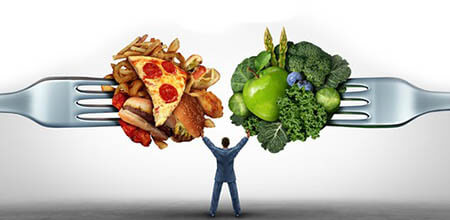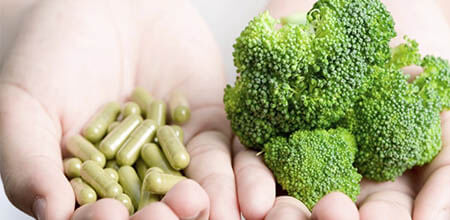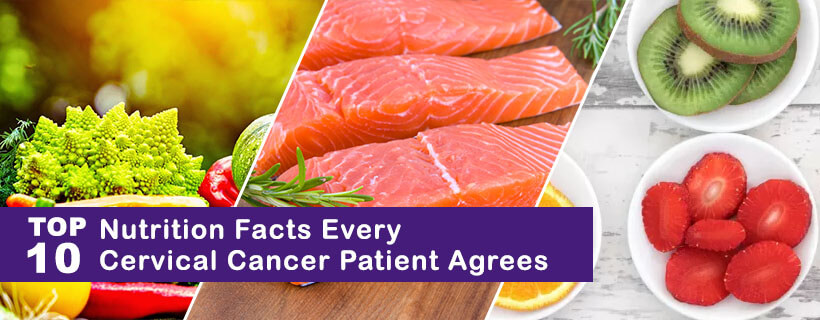Health practitioner, Kris Gunnars of Healthline stated about the nutrition facts that everyone agrees on. He talked about multiple insights base on competitive research and facts; compiling the most critical nutrition facts details. Read on to learn more.
They say nutrition facts can be subjective and it truly depends on a person. However, certain facts were stated regarding the deep-seated issues regarding the truth about the combat lifestyle for cervical cancer. There are quite a many of controversy in nutrition and sometimes, people look like they can’t agree on some narrative on anything. Yet there are some few exceptions to this. Cervical cancer survivors themselves even agreed to a consensus on some facts that truly determine the veracity of the correct lifestyle. To learn more about it, read on the top 10 nutrition facts that every cervical cancer patient actually agrees on. The to be mentioned information below and gathered base on critical research and objective merits of patients themselves.
1. Added Sugar Is Horrendous

“Most of the time, to improve the taste of some foods especially the processed one, manufacturers often add sugar to some goods. This kind of sugar is believed as added sugar. This is some kinds of an added sugar include table sugar and syrups, such as high-fructose corn syrup. Everybody knows that eating too much added sugar is unhealthy. While some think sugar is a simple matter of “empty” calories, others believe it increases the risk of diseases that kill millions of people each year. It is definitely true that added sugar contains empty calories. There are no nutrients in it, other than sugar. As a result, basing your diet on products high in added sugar may contribute to nutrient deficiencies. But this is just the tip of the iceberg. There are many other risks associated with excessive sugar intake that are now reaching mainstream attention. This is because fructose is metabolized strictly by the liver. High intake has been linked with non-alcoholic fatty liver disease, insulin resistance, elevated triglycerides, abdominal obesity and high cholesterol over time.”
2. Omega-3 Fats Are Critical

“Omega-3 fatty acids are extremely important for the proper functioning of the human body. For example, docosahexaenoic acid (DHA), an omega-3 fatty acid derived from animals, makes up about 10–20% of the total fat content in the brain. A low intake of omega-3 is associated with a lower IQ, depression, various mental disorders, heart disease and many other serious diseases. There are three main types of omega-3 fats: alpha-linolenic acid (ALA), eicosapentaenoic acid (EPA) and docosahexaenoic acid (DHA). ALA comes mostly from plant oils, while the best sources of EPA and DHA are fatty fish, fish oils and certain algal oils. Other good sources of EPA and DHA are grass-fed meat and omega-3 enriched or pastured eggs. The plant form, ALA, needs to be transformed into DHA or EPA to function correctly in the human body. However, this conversion process is inefficient in humans.” stated by Kris Gunnars of Healthline.
3. There Is No Perfect Diet for Everyone

“People are all unique. Subtle differences in genetics, body type, physical activity and environment can affect which type of diet you should follow. Some people do best on a low-carb diet, while others are better off on a vegetarian high-carb diet. The fact is, what works for one person may not work for the next.”
4. Artificial Trans Fats Are Very Unhealthy

“Trans fats are formed as a side product when vegetable oils are hydrogenated. Food producers often use hydrogenation to harden vegetable oils for use in products such as margarine. Because trans fats have been linked with poor health, margarine free of trans fats is becoming increasingly common. A high intake of trans fats is associated with various chronic diseases, such as abdominal obesity, inflammation and heart disease, to a name a few.”
5. Eating Vegetables Will Improve Your Health

“Vegetables are good for you. They are rich in vitamins, minerals, fiber, antioxidants and an endless variety of trace nutrients that science has just begun to uncover. In observational studies, eating vegetables is associated with improved health and a lower risk of disease. I recommend that you eat a variety of vegetables each day. They are healthy, fulfilling and add variety to your diet.”
6. It Is Critical to Avoid a Vitamin D Deficiency

“Vitamin D is a unique vitamin that actually functions as a hormone in the body. The skin makes vitamin D when it is exposed to ultraviolet rays from the sun. This is how people got most of their daily requirement throughout evolution. However, a large part of the world is deficient in this critical nutrient today. In many places, the sun simply isn’t available throughout most of the year. Even where there is sun, many people tend to stay inside and use sunscreen when they go out. Sunscreen effectively blocks vitamin D generation in the skin. If you’re deficient in vitamin D, then you’re actually lacking a major hormone in the body. Deficiency is associated with many serious diseases, including diabetes, cancer, osteoporosis and others. To find out if you are at risk, see a doctor and have your blood levels measured. If getting more sun is not an option, taking a vitamin D supplement or a tablespoon of cod liver oil each day is the best way to prevent or reverse a deficiency.”
7. Refined Carbohydrates Are Bad for You

“There are a lot of differing opinions about carbs and fat. Some think fat is the root of all evil, while others believe carbs are the key players in obesity and other chronic diseases. But what pretty much everyone agrees on is that refined carbohydrates are not as healthy as unrefined carbohydrates. Unrefined carbs are basically whole foods that are rich in carbs. These include whole-grain cereals, beans, vegetables and fruits. Refined carbs, on the other hand, are sugar and refined flour. Whole foods contain numerous beneficial nutrients and antioxidants. However, when high-carb foods such as grains are processed, the most nutritious parts are stripped off. What is left are massive amounts of easily digestible starch. Those who base their diets on refined carbs may be lacking in fiber and many other healthy nutrients. As a result, they are at an increased risk of chronic disease Eating refined carbs will also cause rapid spikes in blood sugar. While high blood sugar levels are unhealthy for all people, they are a much greater concern in people with diabetes.”
8. Supplements Can Never Fully Replace Real Foods

“Nutritionism” is the idea that foods are nothing more than the sum of their individual nutrients. But it’s also a trap that many nutrition enthusiasts tend to fall into. Nuts, for example, aren’t just shells loaded with polyunsaturated fat. In the same way, fruits aren’t just watery bags of sugar. These are real foods with a massive variety of trace nutrients. The vitamins and minerals, the ones you can also get from a cheap multivitamin, are just a small part of the total amount of nutrients in foods. Therefore, supplements cannot match the variety of nutrients you get from real foods. However, many supplements can be beneficial, especially those that contain nutrients that are generally lacking in the diet, like vitamin D.”
9. “Diets” Don’t Work — a Lifestyle Change Is Necessary

“Diets” are ineffective. That is a fact. They may provide short-term results, but as soon as the diet ends and you start eating junk food again, you will gain the weight back. And then some. This is called yo-yo dieting and is extremely common. Most people who lose a lot of weight on a diet end up gaining it back whenever they “stop” the diet. For this reason, the only thing that can give you actual long-term results is to adopt a lifestyle change.”
10. Unprocessed Food Is Healthiest

“Processed food is generally not as healthy as whole food. As the food system has become more industrialized, the health of the population has deteriorated. During food processing, many of the beneficial nutrients in the food are removed. Not only do food producers remove healthy nutrients like fiber, but they also add other potentially harmful ingredients like added sugar and trans fats. Additionally, processed foods are loaded with all sorts of artificial chemicals, some of which have a questionable safety profile. Basically, processed foods have less of the good stuff and a lot more of the bad stuff. The most important thing you can do to ensure optimal health is to eat real food. If it looks like it was made in a factory, don’t eat it!”
Ensuring optimal health can be a grueling process, especially if one suffers from cervical cancer. The above mentioned details are just some of the proven and tested nutrition facts that everyone must emulate for a better well-being. Kris Gunnars has definitely mentioned nothing but the veracity.


